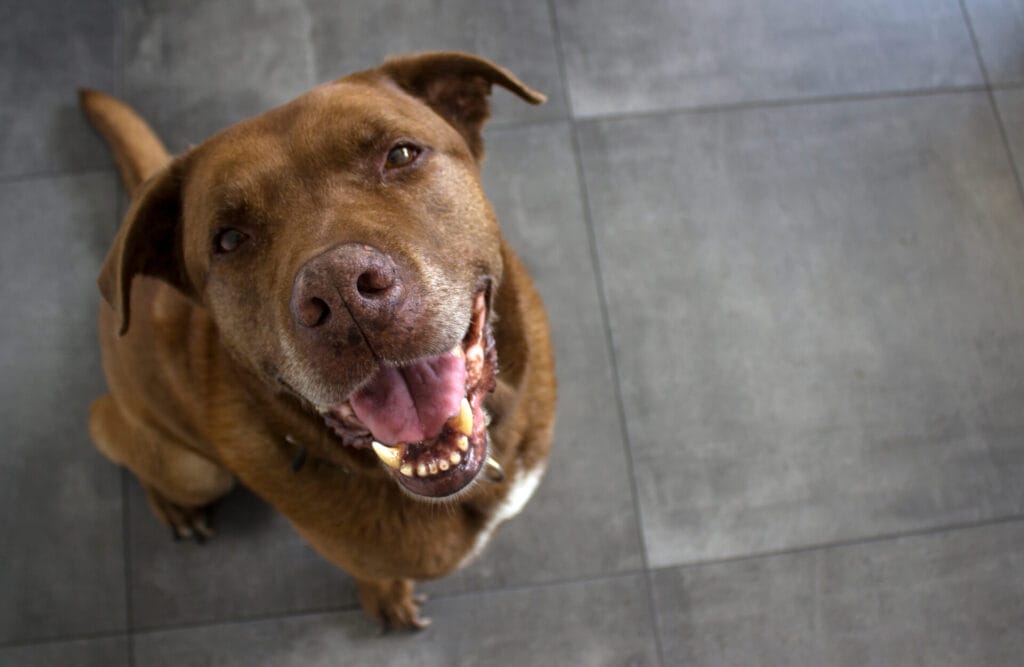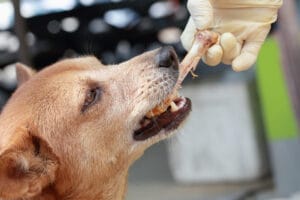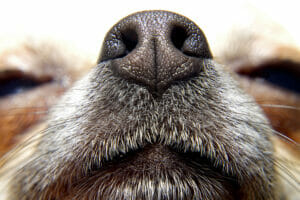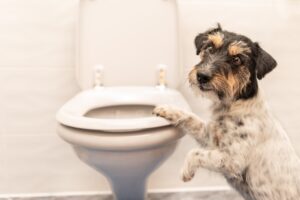As our pups grow older, their teeth may not be as pearly white as they used to be. That’s why dental care for senior dogs is super essential. Poor dental health can lead to serious health issues, and let’s face it; nobody wants to deal with a stinky breath or a toothache. So read on as we explore the ins and outs of senior dog dental care!
Why Dental Care for Senior Dogs is Important
As our pups age, they become more prone to dental issues, which leads to various health problems. It’s easy to think forget about our senior’s teeth, but the truth is, dental care is just as important for senior dogs as it is for puppies.
Here are some reasons why dental care is important for senior dogs.
Risk of Dental Diseases
First things first, dental issues can cause a lot of pain and discomfort. As dogs age, they risk developing periodontal disease that leads to inflammation, gum recession, and tooth loss. And it can make it difficult for them to eat and cause much pain. Also, dental issues can lead to bad breath, making snuggles less pleasant for you and your furry friend.
Risk of Other Health Issues
Did you know that dental problems can cause major health issues for your furry friend? It’s true! Nasty bacteria can sneak into their bloodstream if you don’t care for your dog’s teeth and can even result in serious complications such as heart, liver, and kidney infections, which can even be life-threatening for your pup! So while it may seem unimportant, proper dental care is crucial to your senior dog’s overall health.
Foul Mouth Odor
If your dog’s breath starts to smell, it might indicate dental problems. Nasty bacteria can accumulate in their mouth, resulting in foul odors. Don’t let your pup suffer in silence – if you detect a particularly pungent smell, it’s time to book a visit to the vet.
Difficulty Chewing
Another red flag to look out for is if your pup needs help chewing their food or avoids certain foods altogether. If this is the case, it could indicate pain or discomfort in their mouth, potentially due to tooth decay or gum disease. Don’t take chances with your pup’s health – seek the help of a professional as soon as possible.
Irritable Behavior
Additionally, watch for any changes in your dog’s behavior. For example, if they’re suddenly more irritable or lethargic than usual, it could be because they’re in pain. Dental problems can cause discomfort that can lead to changes in behavior, so it’s essential to take note of any unusual changes in your dog’s demeanor.
Swelling or Bleeding Mouth
Lastly, if you’re noticing any swelling or bleeding in your dog’s mouth, it’s time to seek medical attention. These symptoms could indicate a more serious dental issue, such as an abscess or infection. Don’t wait until it’s too late – get your dog to the vet as soon as possible.
Dental Care for Senior Dogs: Preventative Measures
97% of dog species are linked to having some kind of periodontal disease, and this risk increases exponentially as the dog ages.
So what can you do to prevent dental problems in your senior pooch? Here are a few tips to get you started.
Regular Brushing to Maintain Dental Care for Senior Dogs
Just like us, dogs need regular brushing to keep their teeth healthy. Use a soft-bristled toothbrush and dog-friendly toothpaste to brush your senior dog’s teeth at least twice a week.
Dental Treats and Toys
Many dental treats and toys on the market are designed to help clean your dog’s teeth while they chew. Look for options for senior dogs, who may have different needs than younger pups.
Regular Vet Checkups
Make sure you take your senior dog to the vet for regular checkups. Your vet can perform a dental exam and help catch any issues early on.
Healthy Diet
Feeding your senior dog a healthy diet can help keep their teeth healthy. Avoid feeding your dog table scraps, and opt for high-quality dog food to support dental health.
Dental Care for Senior Dogs: Conclusion
Listen up, dog owners! If you want your senior dog to live their best life, prioritize dental health. Neglecting their dental care could lead to pain and infections and just make meal times less enjoyable. Keep an eye out for stinky breath, wobbly teeth, or any difficulty eating, and take preventive measures to keep their oral hygiene in tip-top shape.
That means scheduling regular checkups with your vet, providing a nutritious diet, and giving them proper dental care by brushing those teeth.




















